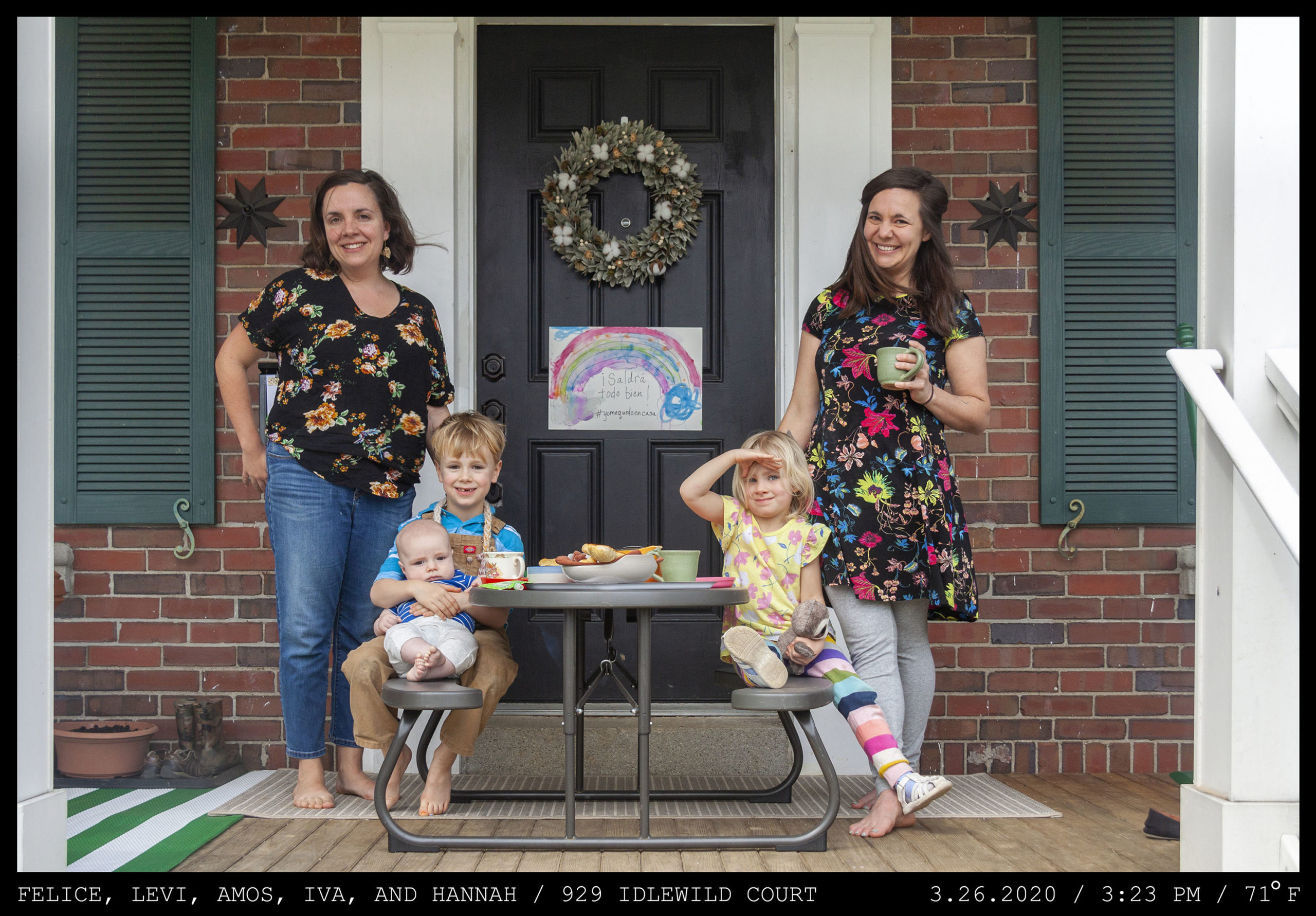With Hannah’s help, Felice has been home-schooling her kids for almost two weeks. The tradition of afternoon tea is, in fact, part of their daily calendar: “3 PM—Tea & Poetry.” Most of the time, they bake cookies at home. At times, they get curb-site pickup from Martine’s, like when they had Shamrock cookies for St. Patrick’s Day. At times, they go to the Blue Grass Bakery. Neighbors now know about their afternoon tradition and stop by with their own treats, which they enjoy on the front lawn.
Audio Transcript
My name is Felice Salmon and I have lived in Lexington for 11 years.
The America I hope to live in is a place where people are given care and respect as human rights.
In this vision of America folks experience the interdependence of a healthy national eco system, instead of the separation and divisiveness of an economy that thrives on erosion of trust.
When provided with adequate support, people make time for life together, instead of struggling to make ends meet. Each person, regardless of economic status, is recognized for their worth and their invisible economic contributions of past and present.
In this vision, effort is made to provide reparations for Black and indigenous people of color, women and children benefit from ideas like Universal Basic Income, Medicaid for all, universal preschool, adequate paid parental leave and universal access to mental healthcare. Folks access restorative justice, education art and creative redistribution of resources.
In this vision of America, I cannot be well unless everyone in the system is well.

